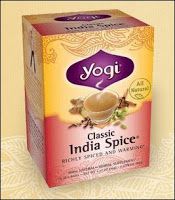Once the dust settled after a number of procedural and evidentiary rulings, the Board dismissed this opposition to registration of the marks YOGOLÉ and YOGULÉ for yogurt-based beverages because Opposer failed to establish her standing and, in any event, failed to prove priority in connection with her Section 2(d) claim and fame in connection with her dilution claim. Bibiji Inderjit Kaur Puri v. Olé Mexican Foods, Inc., Opposition No. 91218292 (August 16, 2019) [not precedential] (Opinion by Judge Cheryl S. Goodman).

Procedural and Evidentiary Rulings: Applicant Olé objected to Opposer's notice of reliance because it was filed too early (i.e., prior to her testimony period). The Board pointed out, however, that an alleged defect in a notice of reliance must be raised promptly in order to allow the other party to cure the defect. Therefore, Olé had waived this objection. Likewise, Olé waived its objection that Applicant had not identified the relevance of the items in its notice of reliance, because Olé did not object promptly.
Applicant successfully objected to a declaration attached to Olé's brief, since it was not filed during her testimony period. Similarly an exhibit attached to her brief was untimely and would not be considered.
Opposer submitted photocopies of the six registrations, but five of them had not been pleaded in the notice of opposition, and, in any case, did not show status and title. And so the Board refused to consider them. As to the one pleaded registration, for the mark YOGI TEA, there was no testimony or evidence establishing Opposer's interest in the registration. Opposer provided links to the USPTO records, but the Board once again refused to take judicial notice of USPTO records, and a hyperlink is not sufficient to make the evidence of record. And so, the Board refused to consider this registration.
The Board overruled Olé's objection to copies of prior Board decisions involving Opposer's YOGI marks. The Board found them admissible as official records that are relevant to show Opposer's efforts to police her mark. However, Olé successfully objected to Opposer's reference to her summary judgment papers, since this evidence was not submitted during her trial period.
In the wake of these rulings, the Board found no record evidence concerning Opposer's use of her YOGI mark. There were website printouts regarding bath products, an article relating to beauty products, a Twitter page for Yogi Beauty, and the official USPTO records of prior oppositions. The Internet evidence did not establish use because there was no testimony or other evidence showing that this use enured to Opposer's benefit. As to the prior Board decisions, Olé was not a party to those cases and cannot be bound by any findings or rulings therein. Moreover, the prior decisions "do not stand as evidence of Opposer's ownership of her pleaded registration or her use of any 'YOGI mark.'"
Standing: Since Opposer failed to submit any evidence of her ownership of a registration for the YOGI mark, nor of her use of the mark, she failed to establish her standing to bring the opposition and Olé made no admissions regarding standing. Nonetheless, for the sake of completeness, the Board went on to discuss )Opposer's likelihood of confusion and dilution claims.
Priority: Opposer submitted no acceptable evidence to establish status and title of her pleaded registration, and no testimony or evidence to establish use of her mark. Since Olé did not admit priority, Opposer could not prevail on her likelihood of confusion claim.
Dilution: Obviously, there was no evidence of the fame of opposer's mark, and so her dilution claim failed.
And so the Board dismissed the opposition.
The content of this article is intended to provide a general guide to the subject matter. Specialist advice should be sought about your specific circumstances.

